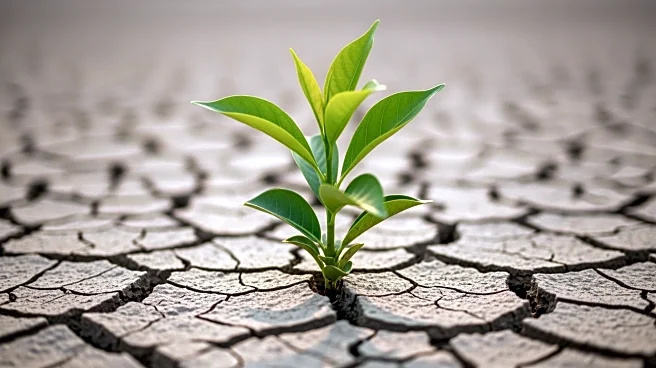What's Happening?
Climate Rights International (CRI) has issued a call to action for the Philippine government, mining companies, and downstream users of nickel, such as electric vehicle and battery manufacturers, to address
the environmental and human rights issues associated with nickel mining. The Philippines, as the leading exporter of raw nickel ore, faces significant challenges, particularly in the Caraga Region, which is home to 23 active nickel mines. The report titled 'Broken Promises: Philippines Nickel Mining Causes Rights Abuses and Increases Climate Vulnerability' highlights the adverse effects of nickel mining, including deforestation, water contamination, and the loss of livelihoods for local communities. Residents of areas like Dinagat Island and Surigao del Sur have reported health issues, food insecurity, and polluted water supplies due to mining activities.
Why It's Important?
The call for reform is significant as it underscores the broader implications of nickel mining on both local communities and global supply chains. The Philippines' role as a major nickel supplier is crucial for industries like electric vehicles and batteries, which are pivotal in the transition to cleaner energy. However, the environmental degradation and human rights abuses linked to mining pose ethical and sustainability challenges. Companies sourcing nickel from the Philippines are urged to leverage their market influence to demand more responsible mining practices. This situation highlights the tension between economic development and environmental stewardship, with potential impacts on global efforts to combat climate change.
What's Next?
The CRI's report suggests that government agencies such as the Department of Environment and Natural Resources and the Mines and Geosciences Bureau should enforce and strengthen regulations to mitigate the negative impacts of nickel mining. Additionally, there is pressure on global buyers, particularly in the electric vehicle and battery sectors, to demand cleaner and more transparent operations from their suppliers. This could lead to increased scrutiny and potential reforms in the mining industry, as well as shifts in sourcing strategies by companies committed to sustainability.
Beyond the Headlines
The situation in the Philippines reflects a broader ethical dilemma faced by industries reliant on raw materials from developing countries. The need for sustainable practices in mining is not only an environmental issue but also a matter of social justice, as local communities bear the brunt of industrial activities. This case could set a precedent for how global supply chains address human rights and environmental concerns, potentially influencing policy and corporate practices worldwide.









